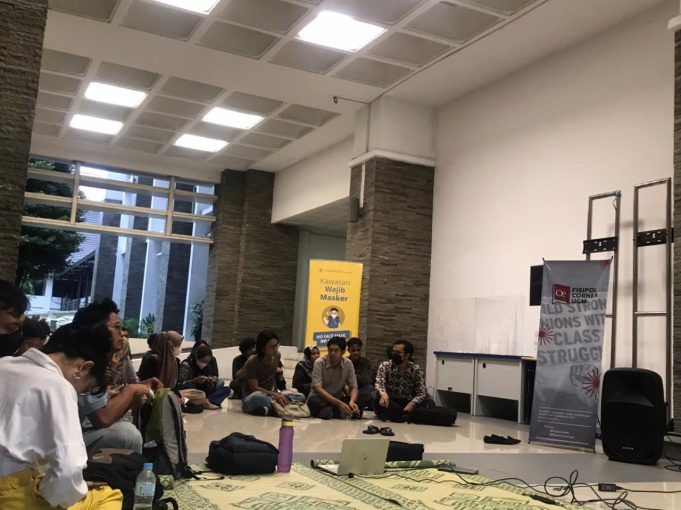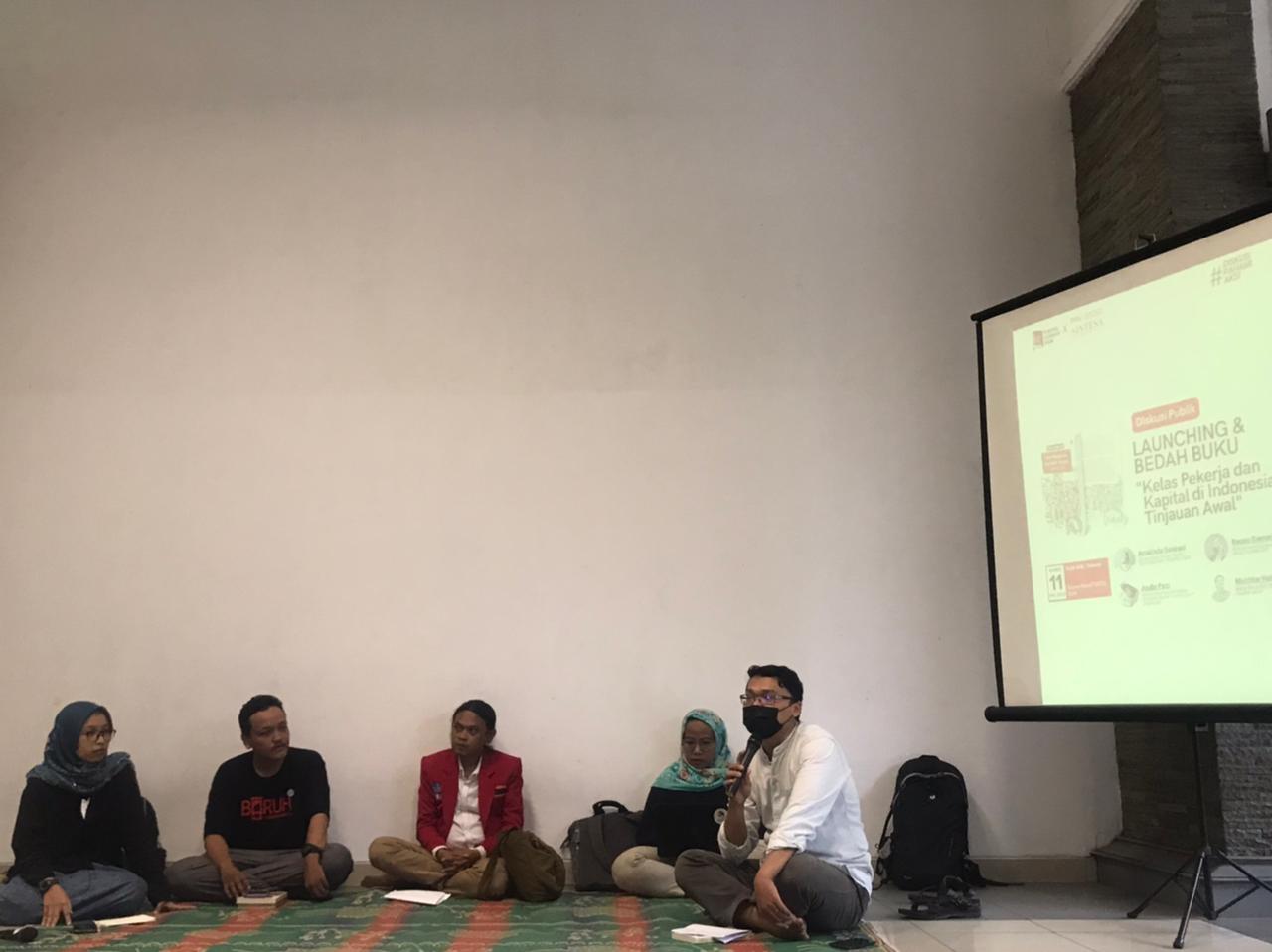
Yogyakarta, May 11th 2023─FISIPOL Corner UGM as a forum for discussion of social issues, managed by Public Policy Management undergraduate students and MAP UGM, successfully held a discussion and review of the book “Working Class and Capital in Indonesia: Preliminary Overview” on Thursday (11/05) on West Hall of FISIPOL UGM. The discussion presented four speakers, namely Andie Peci from the Secretary General of the KASBI Confederation, Muchtar Habibi as the book editor, and Amalinda Savirani Lecturer as the lecturer of the Department of Government and Politics, and student representative Bagas Damarjati.
The book “Working Class and Capital in Indonesia: Preliminary Overview” is the fifth book that was successfully published by FISIPOL Corner UGM, which was previously called MAP Corner UGM. This book departs from a concern for workers’ issues which does not focus on the relationship between workers and their capital.
“Most of the books and research are still about the labor movement, labor strategies in dealing with capital, and others. In fact, capital and workers have different interests along with the increasingly massive neoliberalism,” explained Alniq Nathan, representative of FISIPOL Corner UGM.

Muchtar Habibi as the editor of the book also stressed about aspects that have not been widely discussed in discussions or research but have appeared in this book, namely the labor regime or work regime. “The work regime is an effort to control workers so that they are more enthusiastic about working,” explained Habibi.
Through this work regime, it can be identified how capital optimizes the production process by utilizing its workers. According to Habibi, real examples of work regimes can be observed through processes ranging from worker recruitment, development or employee discipline processes, to how capital then carries out layoffs (termination of employment).
According to Amalinda, as an “initial review” this book is interesting and relevant to the economic context in Indonesia which is very contributive. Habibi also mentioned that in the future the agenda that needs to be carried out after the release of this book is to deepen the discussion and clarify the conceptual relationship between workers and capital owners.
“This book is expected to be a review for friends who carry out studies on the working class and capital more seriously and academically,” explained Habibi.
